Top 10 Magento Websites: Best eCommerce Websites Using Magento (Adobe Commerce)
Listen to this article

Every company, regardless of size or sector, requires an online presence that is both scalable and adaptable enough to meet the ever-evolving needs of its customers. This explains why so many large and small companies are selecting Magento 2. It is strong, adaptable, and designed for e-commerce. Are you up for going headless? Magento supports that. Do you prefer a conventional setup that seems headless? Magento is also capable of managing that. Not in need of either? No problem. Magento can help you if your goal is to expand into a large enterprise-level company. Magento provides robust, cloud-based enterprise solutions with Adobe Commerce that are optimized for performance and scalability. It includes everything you need to create a seamless, contemporary shopping experience, from elegant, feature-rich themes to simple, minimalist core options.
One of the most effective platforms for creating reliable online stores is Magento, an Adobe product. Magento websites are designed for long-term online success due to their ability to manage multi-store operations, support multiple languages and currencies, and integrate with CRM and ERP systems. According to recent data, Magento powers over 650,000 active eCommerce sites worldwide, and its users typically grow three times faster than those of other platforms.
This blog will highlight the best Magento-powered e-commerce sites and discuss why some of the most recognizable brands in the world choose Magento as their e-commerce platform.
Why Big Brands Choose Magento for eCommerce?
Magento is trusted by big brands all over the globe, and rightfully so. It's an eCommerce platform that provides the best flexibility, rich features, and customization options one could ever imagine. So, if you are a small player or a big player, Magento has something in store for you.
Magento Open Source gives businesses the freedom of total control over their coding, making it an attractive choice for developers and teams wanting to work with 'free' coding. Conversely, Adobe Commerce is an option that comes with extra features coupled with secure cloud hosting, thus being suited for fast-growing enterprises that have heightened performance and scalability requirements.
Supporting both B2B and B2C models, Magento gives you the ability to flexibly design your store architecture and business logic exactly as per your requirements. If you run a global business, Magento is like a Godsend because it offers multi-store setups, supports multiple languages and currencies, and maps regional tax and shipping rules effortlessly.
Most developers prefer Magento because of its clean modular architecture, which is PHP encrypted and a flexible, architecture-designed. With support for REST and GraphQL APIs, you can quickly tie in Magento to almost any system. And when it comes to scale, there is no other platform that can weigh and bear heavy loads of huge product catalogs and traffic as smoothly as Magento.
Key Magento Strengths
✅ Flexibility & Customization
Total creative and technical freedom to shape your eCommerce store exactly as you envision it.
✅ Global Commerce Capabilities
Easily oversee multiple stores from one backend panel in different currencies and languages, and apply local tax/shipping rules.
✅ Developer-Friendly Platform
Built for developers, with a modular PHP codebase, extended API support, and a lively global community.
✅ Scalability & Performance
Thanks to caching and optimization capabilities, Magento front-ends handle a lot of traffic and have large product catalogs.
✅ Product Management Power
Handle complex inventories, custom attributes, configurable product types: configurable, bundled, virtual, or many others.
✅ Headless Commerce Ready
Front-end frameworks like React, Vue, and Angular are all supported through integration with PWA Studio.
✅ Third-party Integration
Magento Marketplace provides an easy connection to ERP, CRM, POS, WMS, and thousands of other third-party tools.
✅ Checkout & Payment Extensions
Create your checkout extension and integrate with numerous payment gateways such as Stripe, Razorpay, and PayPal.
✅ Marketing, SEO & Conversion Tools
Increase awareness and conversions using promotion, SEO, upselling, and analytics tools built into the platform.
✅ Security & Compliance
Your store remains secure with continuous release of security patches, two-factor authentication, role-based access, and other PCI-compliant features.
✅ Data & Analytics
Make informed decisions with real-time dashboards, Google/Adobe Analytics integration, and business intelligence tools.
✅ Adobe Commerce Cloud Features
Enjoy managed infrastructure, auto-scaling, 24/7 monitoring, built-in CDN, and enterprise-level support.
Ready to craft your own Magento masterpiece?
Let's talkLoading...
Top 10 Popular eCommerce Websites That Use Magento
1. Coca-Cola (Mexico)
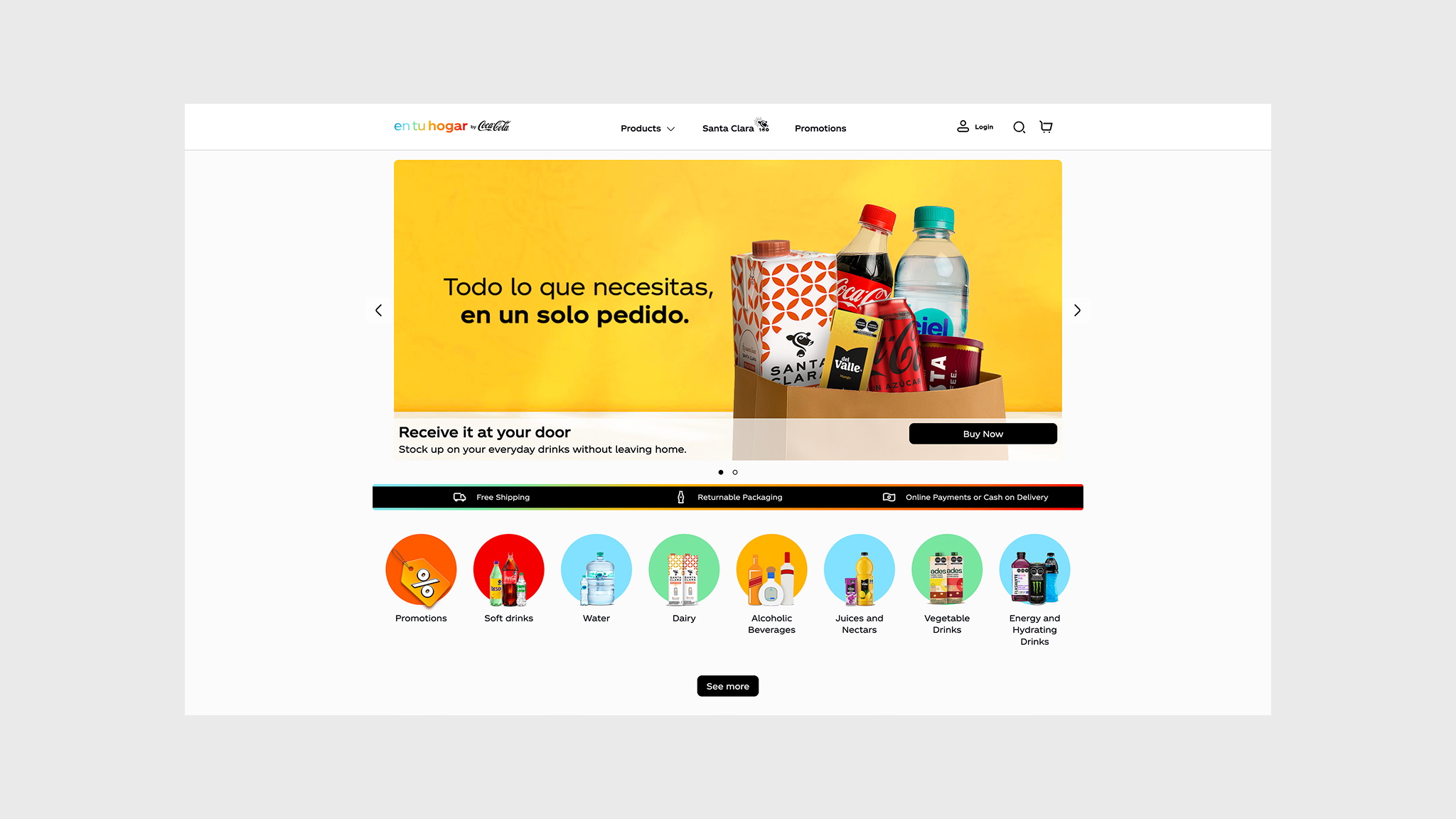
Industry: Beverages
Website: https://www.coca-colaentuhogar.com
Region: Latin America – Mexico
Coca-Cola en tu Hogar in Mexico is built on Adobe Commerce (Magento) and forms a regional pilot on the global Coca-Cola personalization strategy being pursued. The site offers customized shopping experiences, including product recommendations and subscription deliveries. Coca-Cola embarked on customer segmentation, behavioral tracking, and integration into CRM. Some of the quantifiable results include:
- 89% conversion rate among re-engaged shoppers.
- 36% increase in revenue.
- Real-time data flows across CRM, ERP, and Adobe Commerce systems.
- Personalized cart abandonment emails and WhatsApp reminders.
This Latin American installation is being used as a template for Coca-Cola's higher-grounds digital strategy in the U.S. and other markets.
Key Magento Features Used:
- PWA Studio for mobile optimization.
- Custom product configuration.
- Seamless ERP and fulfillment integration.
- Personalized content and recommendations.
2. Helly Hansen
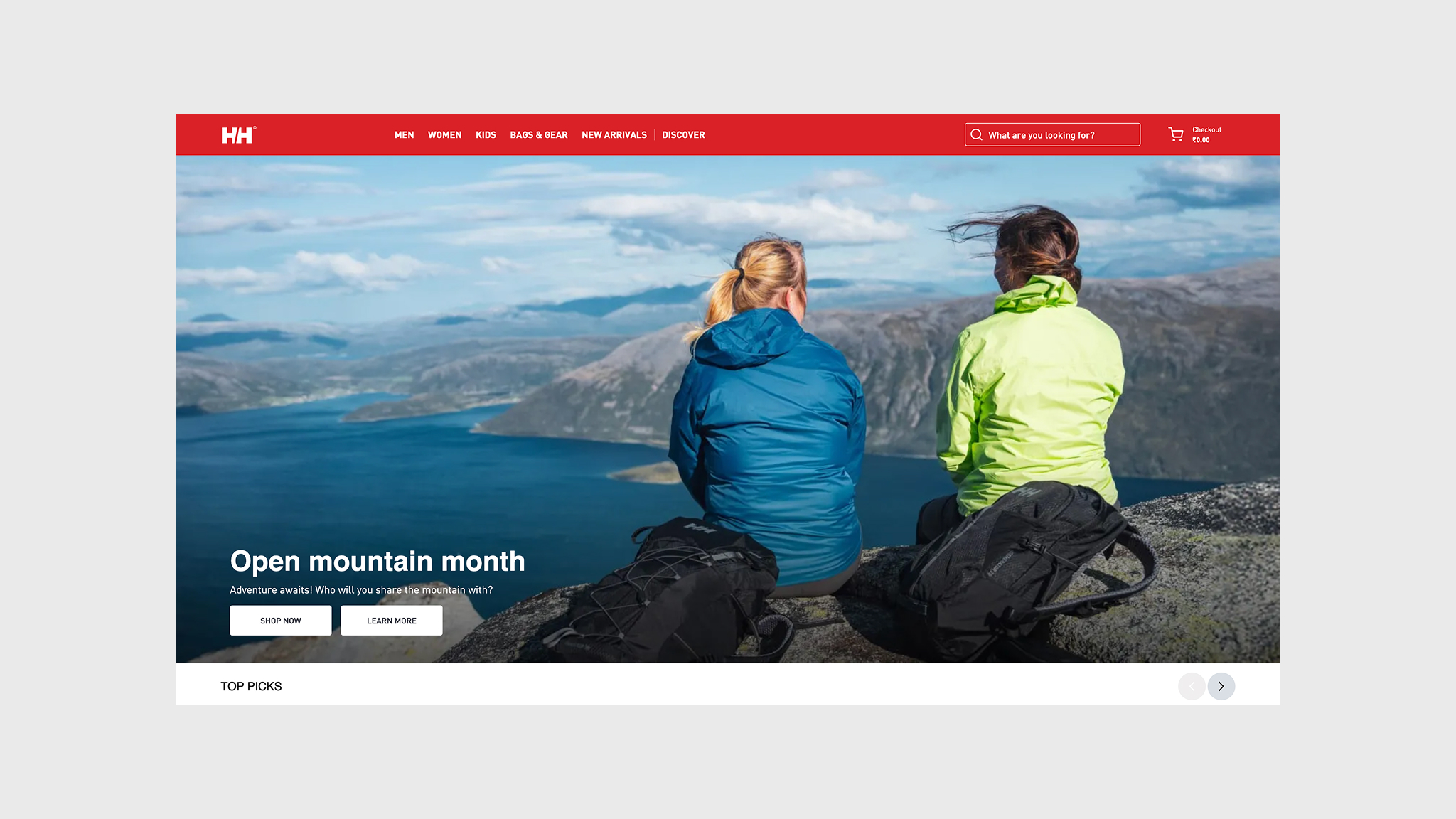 Industry: Apparel and Outdoor Gear
Industry: Apparel and Outdoor Gear
Website: https://www.hellyhansen.com
Serving the elaborate B2B and B2C needs under one complex platform, the Norwegian outdoor apparel brand uses Magento (Adobe Commerce). With Magento's multi-site and multi-language functionalities, Helly Hansen has expanded globally, eliminating the need for a separate system for each region.
Their Magento platform supports a vast and complex catalog with layered navigation filters and customer-specific pricing. Moreover, the scalable Magento cloud can tackle heavy loads during seasonal sale peaks and global campaign periods.
According to Adobe, Helly Hansen runs:
- 55 eCommerce sites.
- 7 language versions.
- 35,000+ products per store.
- Different payment methods, shipping rules, and localized content per region.
The move to Adobe Commerce helped them achieve:
- +40% overall eCommerce revenue.
- +37% mobile traffic.
- +20% overall traffic.
Key Magento Features Used:
- Multi-store and multi-language support.
- B2B module for wholesale customers.
- Advanced catalog and attribute handling.
- Mobile-optimized UX.
3. Canon USA
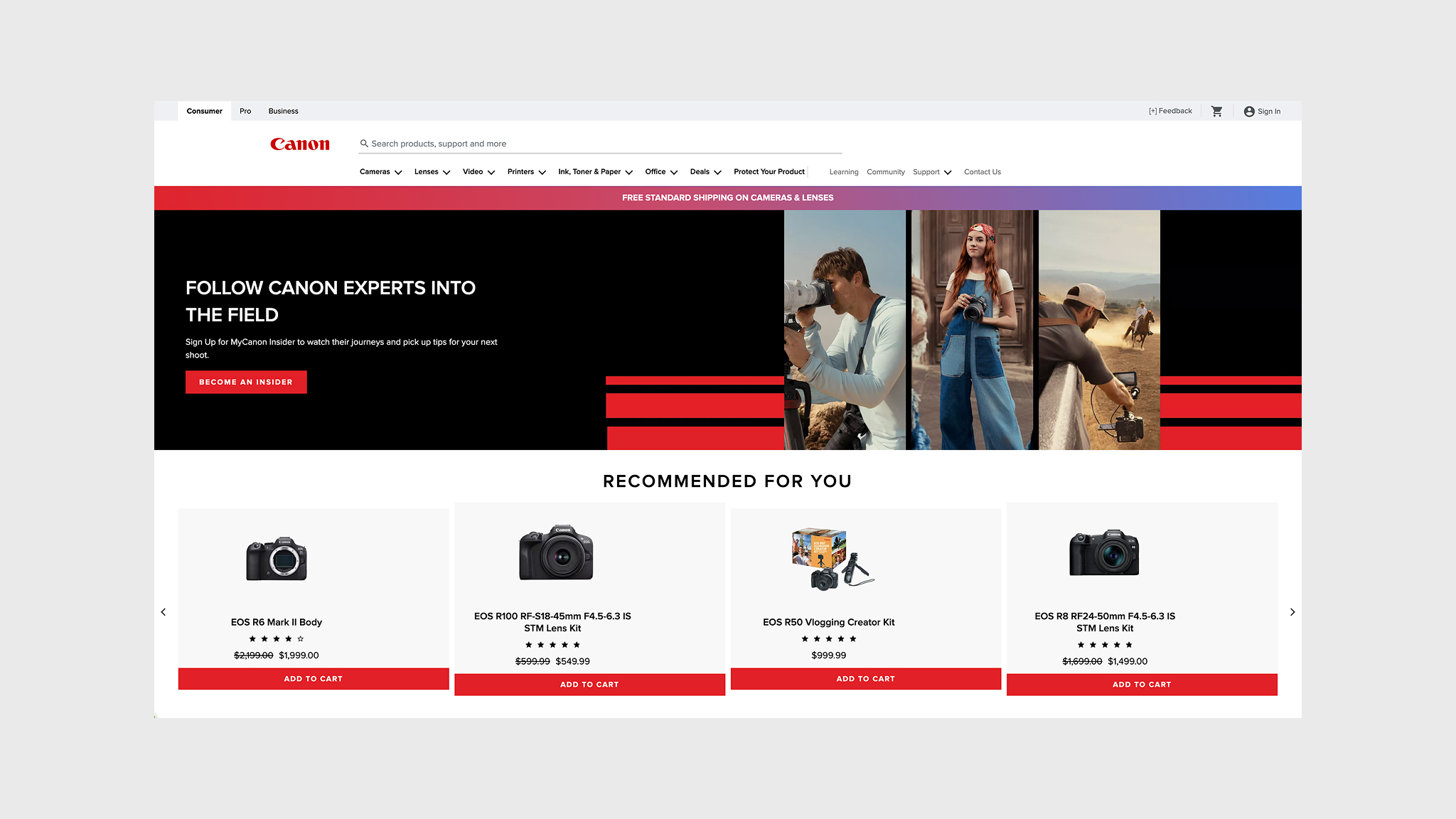 Industry: Electronics and Imaging
Industry: Electronics and Imaging
Website: https://www.usa.canon.com
Canon USA turned to Magento to modernize its digital commerce experience. Magento’s flexible architecture helped Canon build a product-rich website that supports bundles, configurations, and cross-sell recommendations.
The outcome was a simple, easy-to-use shopping experience that enhanced client retention and significantly increased online revenue. The platform integrates with Canon’s internal systems to manage warranty registrations, promotions, and logistics.
This transformation led to:
- 150% growth in conversion rate year over year.
- 73% increase in holiday sales.
- 25% increase in mobile traffic.
- 20% reduction in bounce rate.
Key Magento Features Used:
- Configurable and bundled products.
- API integrations with internal systems.
- Dynamic pricing and promotion handling.
- Optimized checkout.
4. Cox & Cox
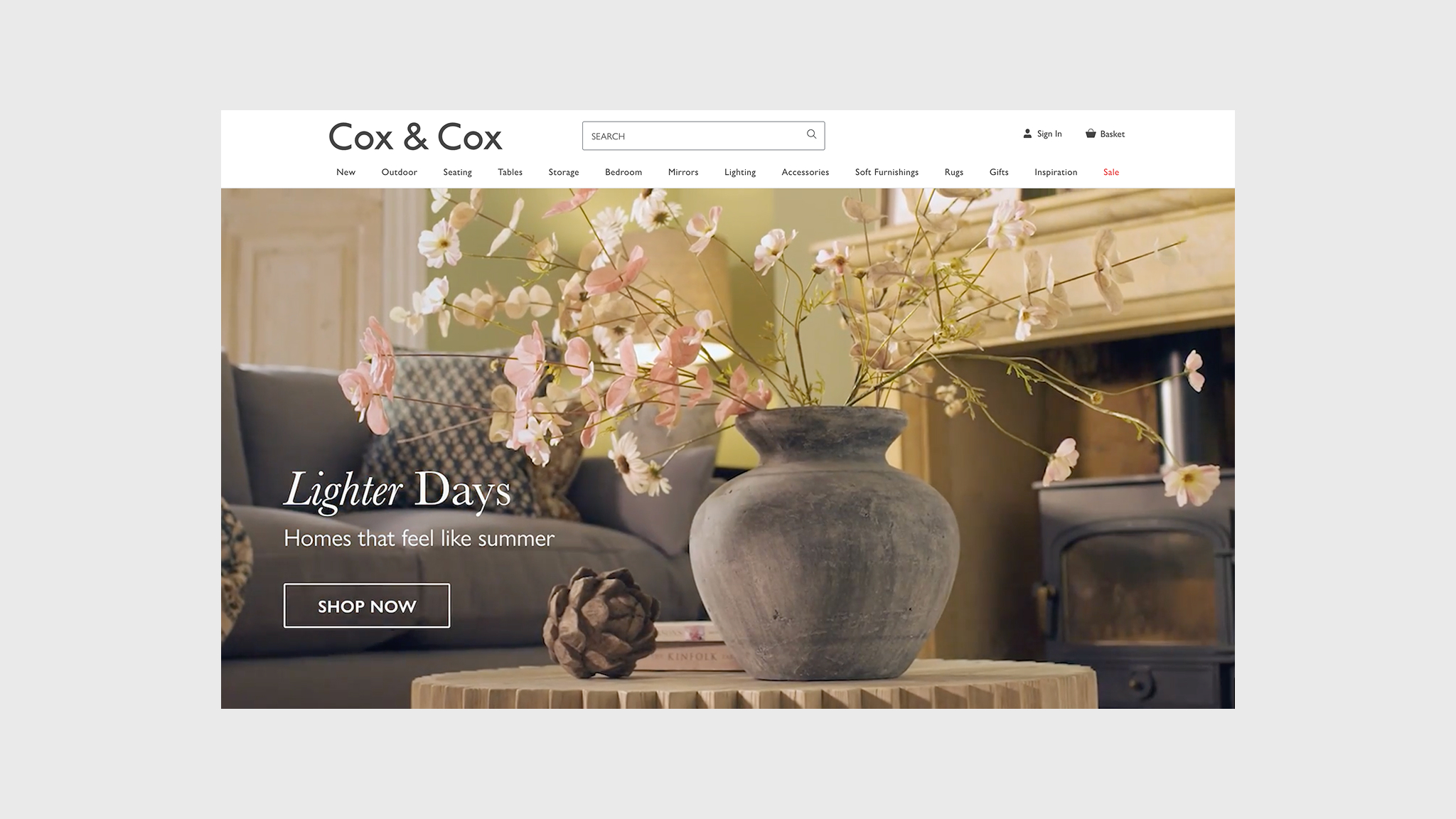 Industry: Home Decor
Industry: Home Decor
Website: https://www.coxandcox.co.uk
Cox & Cox, a UK-based luxury homeware and furniture retailer, successfully leveraged Magento 2 to modernize its digital infrastructure and enhance customer experience. Through a comprehensive replatforming initiative, the company integrated Magento 2 with ERP and WMS systems, leading to significant improvements in performance and customer engagement.
Key Magento Features and Integrations:
- Magento 2 Replatforming: Successfully migrated from Magento 1 to Magento 2 and integrated with NetSuite ERP and WMS, showcasing Magento's flexibility in handling complex backend systems.
- Mobile Optimization: Built with a responsive design and mobile-first approach, improving the mobile shopping experience using Magento’s built-in mobile capabilities.
- Enhanced Shipping Experience: Implemented ShipperHQ to provide customized shipping options, improving checkout flexibility and efficiency.
- Advanced On-Site Search: Integrated Klevu AI-powered search to enhance product discovery and improve search relevance and filtering, utilizing Magento’s support for third-party search tools.
- Continuous Optimization: Used Magento’s flexible frontend architecture to implement A/B testing and continuous UX improvements through custom theme development and experimentation.
Through these strategic implementations, Cox & Cox enhanced its online presence, streamlined operations, and delivered a superior shopping experience to its customers.
5. Liverpool FC
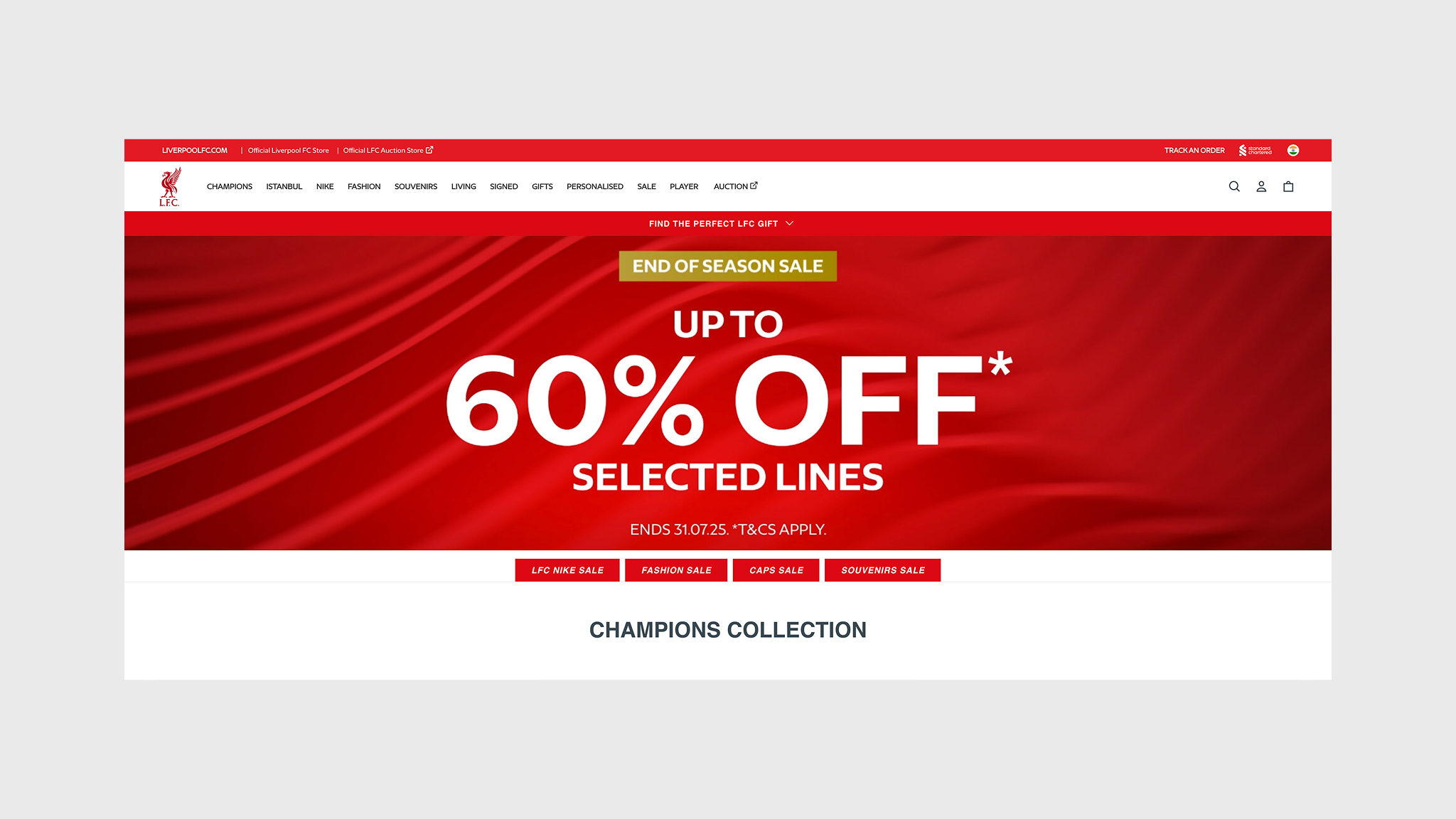 Industry: Sports and Merchandise
Industry: Sports and Merchandise
Website: store.liverpoolfc.com
LFC's online store effectively serves fans worldwide, offering a wide range of merchandise, including official kits, training gear, and exclusive memorabilia. The platform's scalability ensures smooth performance during high-traffic events such as product launches and match days.
The store leverages Magento's customization capabilities to provide personalized services, enhancing user engagement and loyalty. Features like member-exclusive deals and gift cards encourage repeat visits and purchases.
To accommodate its international customer base, the platform supports multiple currencies and languages, ensuring a seamless shopping experience for fans across different regions.
While specific integrations are not publicly detailed, it's common for large-scale eCommerce operations like LFC's to integrate with Enterprise Resource Planning (ERP) and ticketing systems to streamline operations and provide a unified customer experience.
Key Magento Features Used:
- Scalable infrastructure for global traffic.
- Personalized merchandising and promotions.
- Multi-currency and multi-language support.
- Integration with ERP and ticketing systems.
6. Bfab
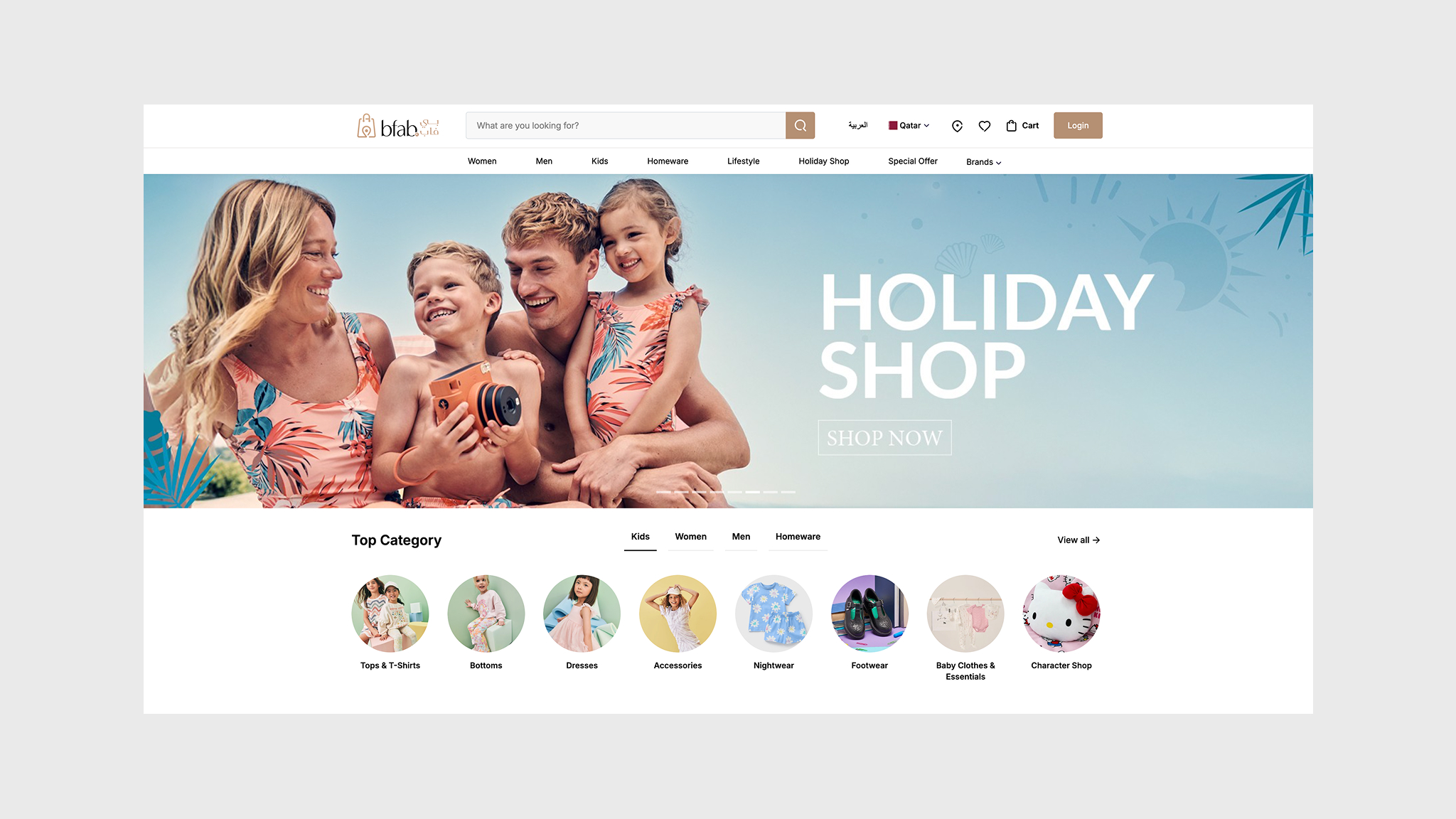 Industry: Beauty & Fashion
Industry: Beauty & Fashion
Website: https://bfab.com
Bfab is a modern beauty and fashion platform developed using Magento by Webandcrafts. Bfab built a cutting-edge e-commerce website with Magento 2 Headless Commerce using Next.js PWA. Their solution offered the fastest page speed, a smooth shopping experience across all devices, and easy management of 24 stores and over 100,000 products managed on the PWA frontend and Magento backend, respectively.
Key Magento Features Used:
- Tailored UI and UX.
- Effective use of Magento GraphQL API for headless commerce.
- Centralized management of 24 stores and 100,000+ products.
- Seamless PWA integration using Next.js for fast performance.
7. JumboSouq
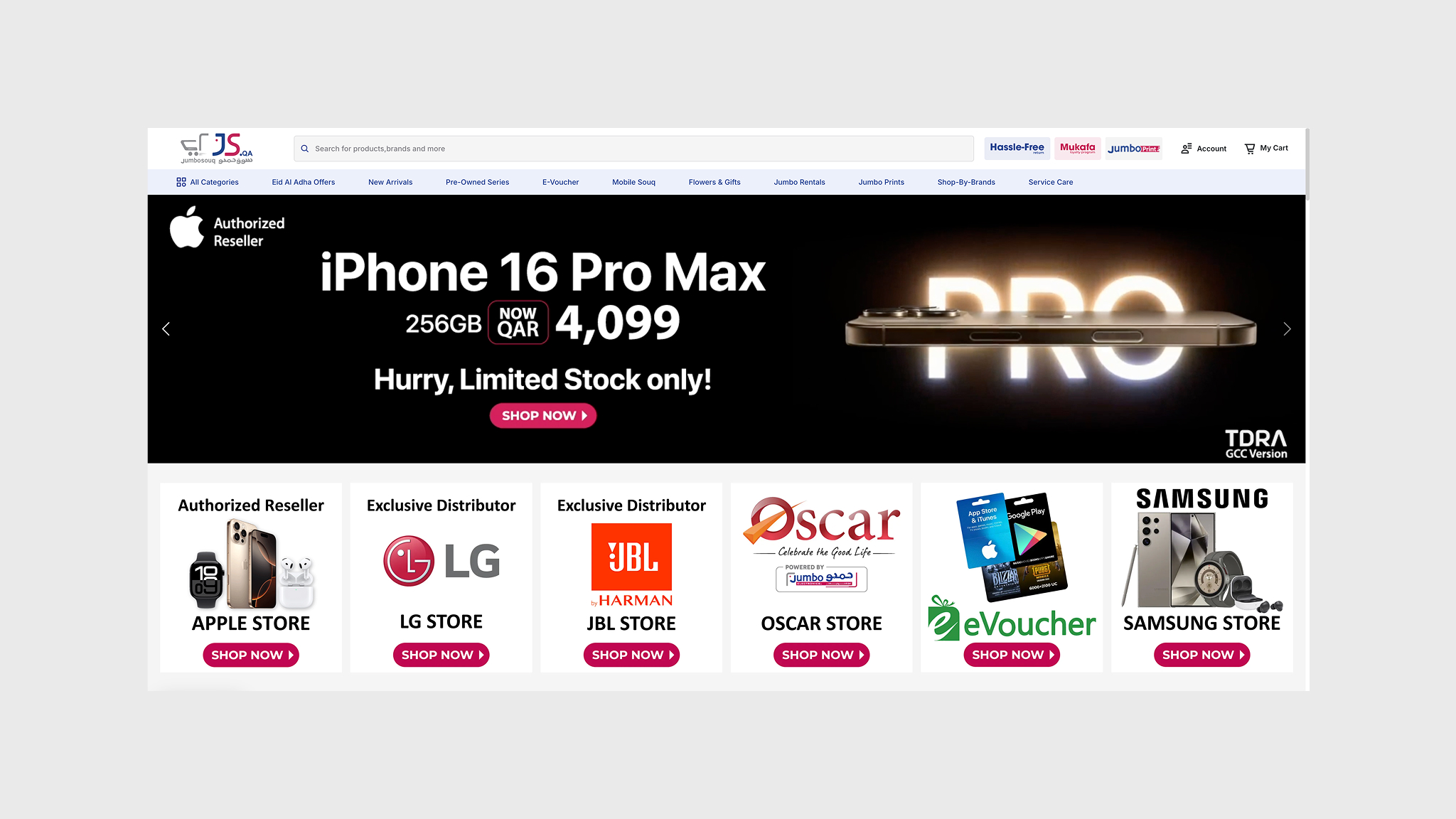 Industry: Electronics Retail
Industry: Electronics Retail
Website: https://jumbosouq.com
JumboSouq, another Webandcrafts project, is a prime example of a Magento site built with headless commerce in mind. This high-performance, large catalogs and heavy traffic, particularly during seasonal shopping events like Black Friday and Ramadan sales.
JumboSouq, the first exclusive eCommerce site for electronics and home appliances in Qatar, is using Magento's Headless PWA in Next.js. The client wanted to create a highly functional and user-friendly e-commerce website and application. After working with WAC, they were able to use a digital platform that was tailored to their needs to boost sales and brand awareness.
GraphQL and Magento's backend work together to improve Next.js applications' adaptability and customisation. With this setup, mobile apps run fast, websites can run as efficiently as possible, and users are very happy. The Webandcrafts team's WAC Search, which provides blazing-fast product searches with any phrase entered, is another crucial feature.
Key Magento Features Used:
- Headless implementation with custom frontend.
- Multi-warehouse and bulk order management.
- Advanced filtering options and WAC search.
- ERP and shipping partner integrations.
8. Technoblue
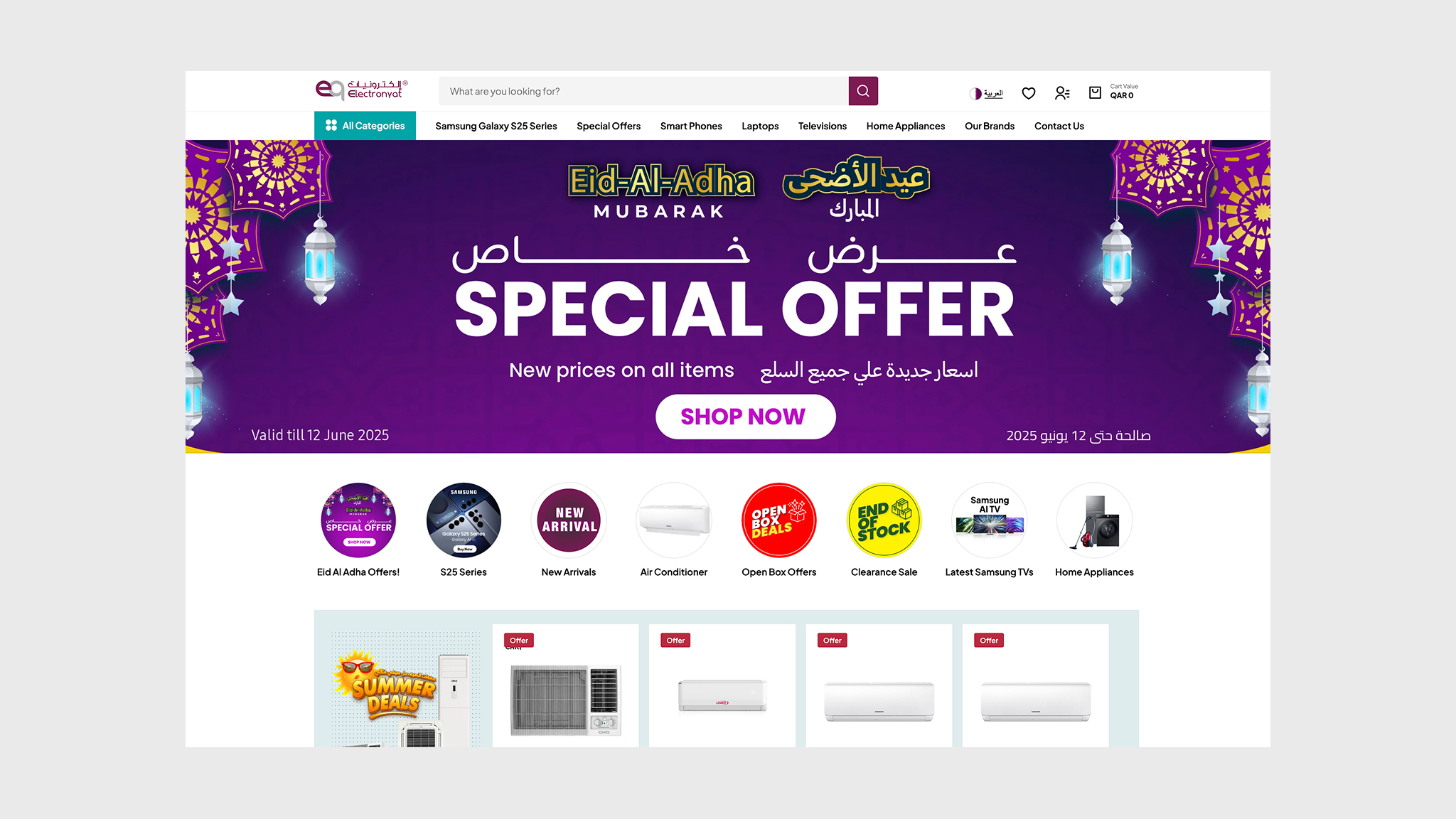 Industry: Electronics
Industry: Electronics
Website: https://electronyat.qa
Techno Blue Electronyat, one of the biggest electronics and appliance retailers in Qatar, teamed up with Webandcrafts and used Magento 2 Headless Commerce with Next.js PWA and Flutter to provide "Techno Blue" with a top-performing digital platform.
The Magento 2 headless architecture combined with Next.js PWA ensures quick page loads, simple navigation, and a seamless browsing and shopping experience. Furthermore, by providing a native, high-performing application, the mobile app's support for Flutter on iOS and Android devices further boosts user engagement.
Key Magento Features Used:
- Magento 2 Headless Commerce with Next.js PWA.
- Flutter-based native mobile app for iOS and Android.
- Quick page loading.
- Integration with warehouse and payment systems.
9. HP (Hewlett-Packard)
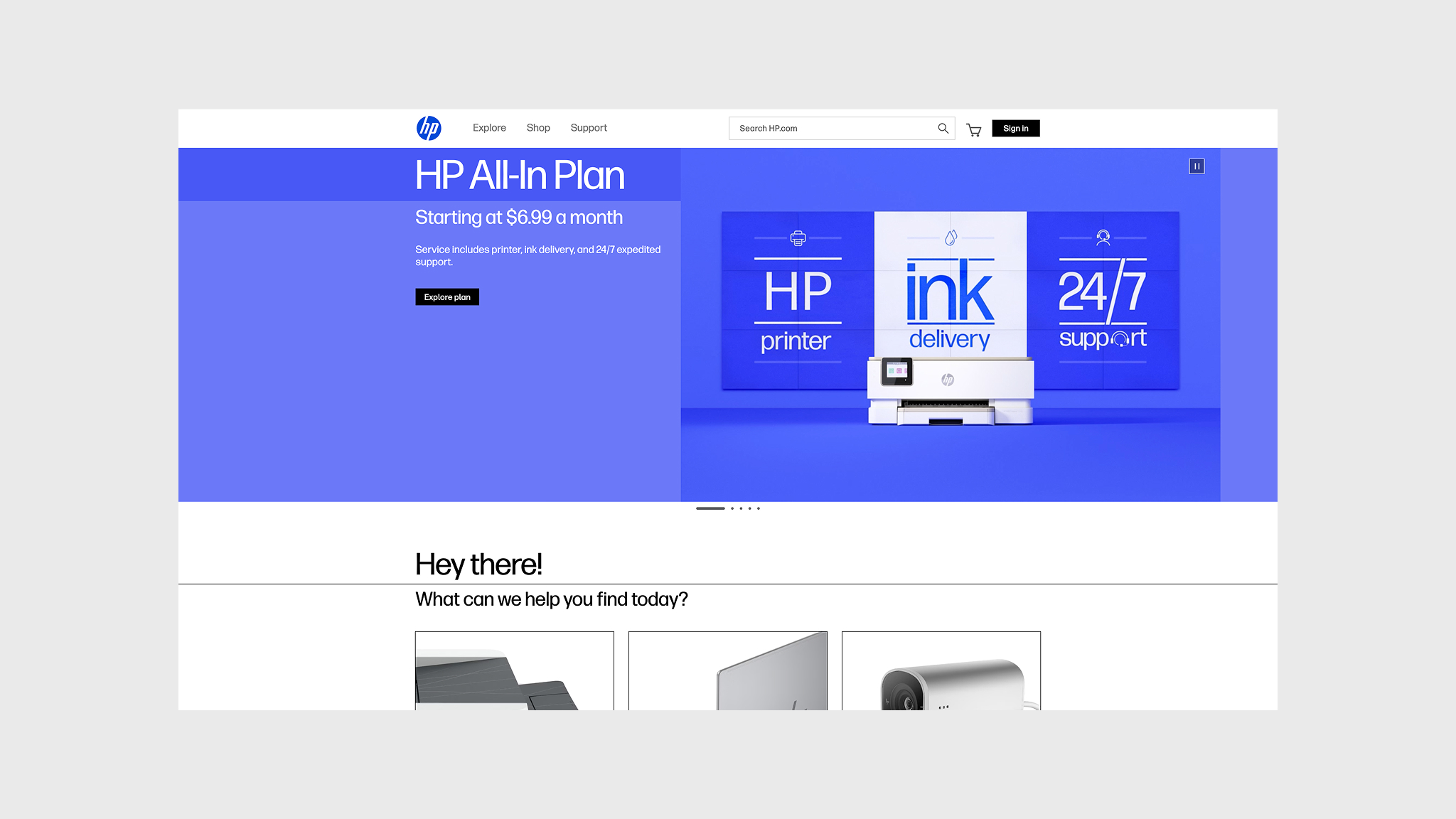 Industry: Computers and Electronics
Industry: Computers and Electronics
Website: https://www.hp.com/us-en/home.html
HP uses Adobe Commerce as an e-commerce solution in over 30 markets around the globe. The platform supports multiple regional storefronts from a single backend, allowing each region to offer a uniquely local shopping experience with regional payment methods, fulfillment logistics, and languages.
HP wants to drive more foot traffic through Click & Collect. Across 23 stores in India, a pilot saw 26% of customers choosing in-store pickup, saving huge delivery costs and boosting offline engagement. The program has now been rolled out to 400 Click & Collect stores worldwide.
In the past year, HP has enabled 116 agile releases with Adobe Commerce and continues to scale the platform to other countries. The uber-flexibility of the Adobe Commerce allowed HP to support direct sales in Asia-Pacific, Latin America, and other regions through fast, iterative rollouts.
HP architected its platform into a three-tier ladder: Adobe Commerce core (shared navigation, templates, and security), the "HP Universe" (centralized project and content management), and regional layers (local payments, fulfillment, and order management).
HP applies Adobe Sensei for AI-assisted product recommendation services according to each customer's needs and behavior, thereby aiding in augmenting conversions and creating a richer shopping experience.
Key Magento Features Used:
- Multi-site and multi-region setup.
- Click & Collect functionality.
- Integration with internal systems, including POS and ERP.
- Personalized product recommendations using Adobe Sensei.
- Localized payments, shipping, and content per market.
- Agile development and fast go-to-market capabilities across regions.
10. Christian Louboutin
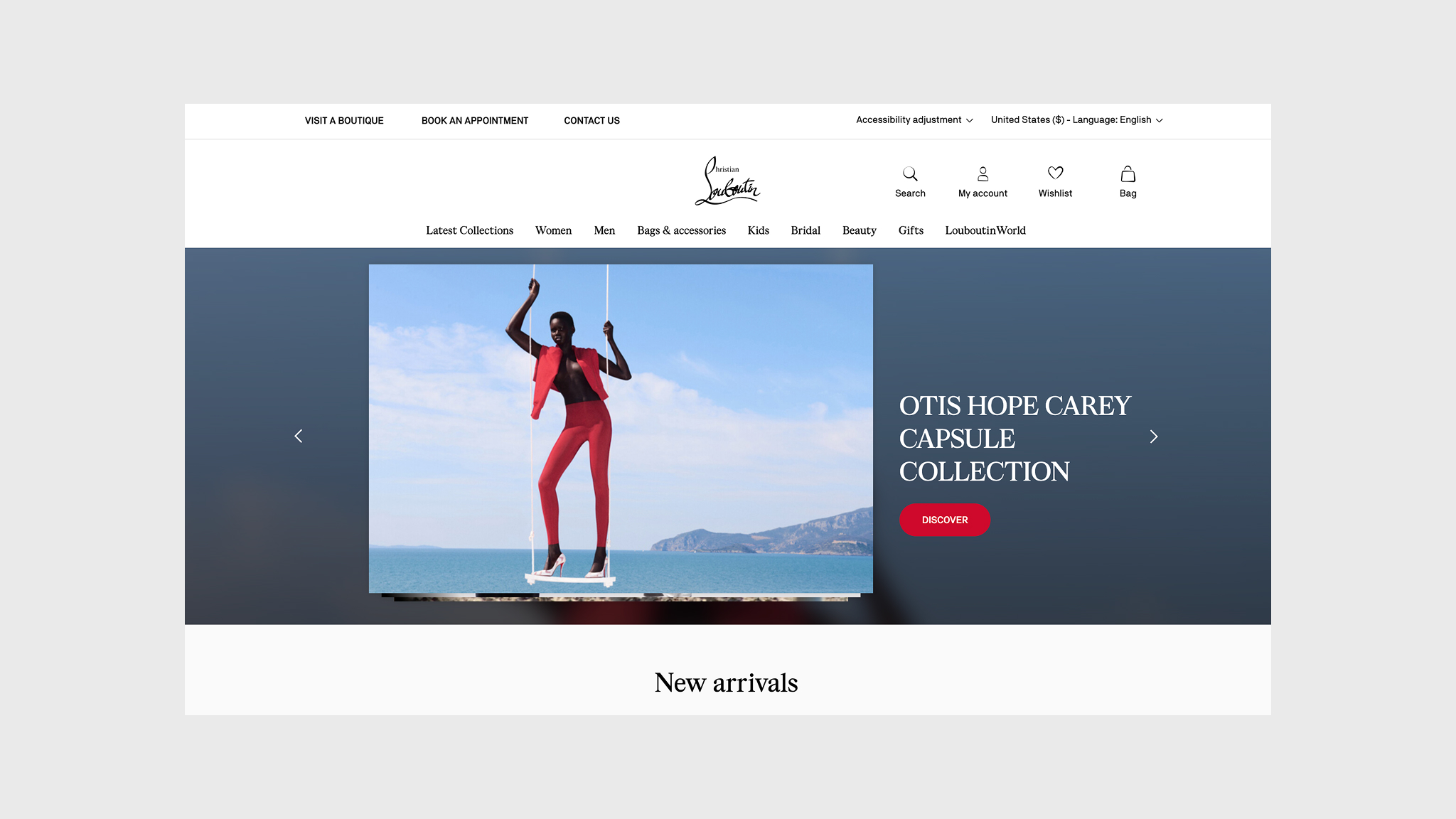 Industry: Luxury Fashion
Industry: Luxury Fashion
Website: https://us.christianlouboutin.com/us_en/
Christian Louboutin, the luxury footwear and fashion brand, delivers a rich, immersive shopping experience with Magento. The e-commerce website reflects the high-end nature of the brand, with high-quality images and a rather minimalist layout that draws attention to the aesthetics of the products themselves. The site design is essentially complementary to the UX, providing a very intuitive and visually appealing environment for browsing and buying. With Magento, the brand supports secure checkout processes, inventory visibility, and integration with global shipping carriers.
Key Magento Features Used:
- Elegant UX with rich visual merchandising.
- Multi-currency and geo-targeting.
- Secure checkout and fraud prevention.
- Custom product inventory sync.
Key Features of Successful and Best Magento Websites
1. Good Website Structure
Both SEO and user experience depend on an easy-to-understand structure. Businesses can use Magento to create product categories that are well-organized, hierarchical menus, and clean URLs. These features help customers navigate easily and find what they’re looking for without confusion.
2. Page Load Speed
The conversion rate and user retention depend on speed. Advanced performance optimization tools like Varnish caching, image compression, and Content Delivery Networks (CDNs) are supported by Magento. These tools improve site responsiveness and drastically cut down on load times, particularly during periods of high traffic.
3. Design and User-friendly Navigation
Magento offers flexible theming capabilities, allowing brands to create unique designs that reflect their identity. Combined with user-friendly navigation elements like mega menus and breadcrumbs, customers enjoy a seamless and consistent journey across the site.
4. User Experience (UX)
Magento’s layered navigation, advanced filtering options, and dynamic product displays make it easier for users to browse and shop efficiently. The platform also supports personalized recommendations and upselling features that boost user engagement.
5. Mobile-Friendliness
With mobile commerce rising, Magento’s compatibility with Progressive Web Apps (PWAs) ensures fast, app-like experiences on smartphones and tablets. This mobile-first approach enhances accessibility, increases dwell time, and improves conversion rates.
Bottom Line
Magento continues to lead as a top-tier eCommerce platform for ambitious businesses. Whether you’re handling cross-border commerce, B2B operations, or flash sales, a Magento eCommerce website offers the scalability, flexibility, and performance that modern enterprises demand.
Each brand mentioned in this article highlights how Magento development services can be tailored to meet unique goals. These Magento websites are more than just stores — they’re strategic digital experiences that fuel business growth.
As a global Magento development company, Webandcrafts has consistently delivered solutions that align with brand goals, integrate with enterprise systems, and provide measurable ROI.
Whether you’re looking to migrate, upgrade, or build a custom Magento solution, our team is equipped to support your digital journey. You can also hire Magento developers to scale faster and bring deep expertise to your project. At WAC, we help you build, manage, and grow robust eCommerce solutions tailored to your business goals.
Ready to build your Magento store?
Let's talkLoading...
- Complete Guide to Magento (Adobe Commerce) eCommerce Platform
- Adobe Commerce vs Commercetools: Choosing the Right eCommerce Platform for Scalable Success
- Magento Alternatives: 8 Powerful Competitors for Scalable, Modern E-Commerce Solutions
- Magento 2 Inventory Management: Key Insights
- Magento (Adobe Commerce) vs WooCommerce: Comparison of E-commerce Platforms
Discover Digital Transformation
Please feel free to share your thoughts and we can discuss it over a cup of tea.










